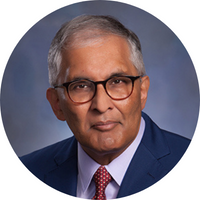
You spent decades in the biopharmaceutical industry working for Pfizer. When you look back on the dramatic changes to the structure of that industry, what do you think was lost and what do you think was gained by the changes?
The formation of mammoth biopharmaceutical companies following mergers has allowed the surviving entities to have the resources to be significant players concurrently in many large therapeutic areas (e.g., oncology, immunology) as well as to be able to bet big on emerging therapeutic modalities (e.g., gene therapy). Massive investments in biotechnology by companies previously focused on chemical drugs only is a consequence of that consolidation.
What has definitely been lost is employee loyalty. Pharmaceutical R&D and manufacturing site closures have had a devastating impact on the economies of certain host communities.
Pfizer asked you to identify, establish and nurture strategic alliances with partners such as Lonza Biologics and Boehringer-Ingelheim in Germany. Generally speaking, when should a company like Pfizer ‘go it alone’ vs. seek to achieve a goal through a strategic partnership?
The reasons for engaging strategic partners for drug development are two-fold: (1) shortfall in internal capacity; and, (2) lack of internal capabilities.
When the first monoclonal antibody entered our portfolio in the 1990s, we were unsure if it was a one-off product or a pipeline of it was coming. So, we hedged our bets by engaging strategic external partners for their development while slowly building in-house capabilities. By the time our monoclonal antibody portfolio matured in the mid-2000s, we were nearly self-sufficient in developing them and engaged the strategic partners for surge capacity only.
Pfizer tapped you to serve as the technical leader of a team to develop and implement a strategy for Pfizer’s entry into the field of biosimilar medicines. What are your key learnings from that experience?
Biosimilars are a new class of biomolecules for which a defined pathway for regulatory review and approval did not exist at that time. So, it was just as important to influence the content of the biosimilar legislation winding its way through the US Congress as it was to apply state-of-the art analytical tools to the “finger-print like” characterization of the biosimilar molecules.
In spite of all the technical advances in demonstrating similarity of a biosimilar to its reference product, the jury is still out on whether biosimilars can be a stand-alone viable business.
You also you had a leading role in forming other entities, such as Pfizer’s in-house biologics group in Groton, CT and Sittingbourne, UK, as well as a $24 million fermentation plant in Groton. In your spare time, you helped create the Society for Biological Engineering (SBE) as a unit of the American Institute of Chemical Engineers. What are the essential traits that powered this track record of building things?
A principal trait has been to first validate that a real need existed for the investment that one was proposing: that involved identifying and repeatedly querying all key stakeholders of the project. Without that groundwork, you risk investing in white elephants!!! Needless to say, leadership, teamwork, respect for people and self-confidence were all essential traits needed to successfully conclude those endeavors.
The United States has witnessed a significant outbreak of measles this year, primarily because some parents - for a number of reasons - do not vaccinate their children against the disease. As a scientist, and as one who had more than a passing interest in vaccines while at Pfizer, what is your view on this situation?
It is a fact that any pharmaceutical or vaccine will present adverse events in a small subset of its target population. So, it comes down to succinctly communicating the benefits vs. the risks of vaccines. In my opinion, the benefit of human suffering avoided by vaccination far outweighs the risk of injury to a small number of individuals. Vaccines for infectious diseases, such as for measles, works best for disease control when a large proportion of the threatened population is vaccinated.
Under such circumstances, I can support mandatory vaccination – though my preference is still for individuals to volunteer for vaccination when advised to do so by healthcare professionals.
How did you parents influence your leadership style?
My father was a university professor and later a high-level university administrator. He had to manage a large, complex organization not through command and control – but, through listening and persuasion. I observed my father in action from an early age and picked up the management traits of inclusiveness and persuasion from him. I also learned that you must be able to command the respect of your team members to succeed, especially in the business world.
Do top performing chemists and chemical engineers deliver value today the same way they did when you arrived at Pfizer in the 1980s? What are the lessons for early career chemists and chemical engineers?
Drug development is a lot more complex today than it was in the 1980s: the low-hanging fruits have already been plucked. In the 1980s, each chemist and chemical engineer focused narrowly on his or her area of specialization – less value was ascribed to interdisciplinary research. Today, most of the gains in drug development are coming from interdisciplinary research. In that environment, early career chemists and chemical engineers need to enhance their mastery of “soft” skills: teamwork, leading without authority, work-life balance, etc.
Most importantly, there has to be a lifelong commitment to learning as the skills learned in college may be long obsolete before a person retires from the workforce. And, some of the best project managers I have ever worked with were trained as chemical engineers!!!!
You recently endowed a scholarship for the ACS Scholars Program with a gift of appreciated stock. What motivated you to do that?
For a student from an economically-challenged family, the ACS Scholars stipend can be the difference between finishing college and dropping out: I have heard that theme consistently from many current and past ACS Scholars. A college degree in chemical sciences opens up many fulfilling career path options. My principal motive in funding the scholarship was to make sure the same opportunities in the chemical sciences are available to a current student that I enjoyed in my formative years.
India is where you obtained your undergraduate degree, and a country to which you frequently return. What would you say is the greatest unmet need on the part of chemists and chemical engineers in India?
Generally, R&D investments by Indian chemical and biopharmaceutical companies is relatively small in comparison to their western counterparts. There is also limited translational research that convert chemical discoveries to marketable products. Many chemists and chemical engineers in Indian industry feel under-appreciated in comparison to their academic counterparts.
As you reflect back on your career, what’s been more gratifying to you: Achieving technical success in helping to create a drug? Or achieving success in designing and implementing a key business strategy or partnership?
Many technical employees of the pharmaceutical industry spend their careers without ever touching a drug that reached the market. So, for me, it is a blessing that my teams shepherded several human and animal health drugs to market. But, most gratifying is the young talent I nurtured in my teams who have gone on to assume senior management (vice-president and above) positions in top-tier biotechnology companies: I especially bask in their accomplishments as I witness them receive prestigious scientific society and industry awards.

Arindam Bose is currently an Independent Consultant in biologics process development and manufacturing following a 35-year career in bioprocess development, clinical supply manufacturing, external partnering, corporate biotechnology strategy and advocacy for science-based regulations for biologics at Pfizer Worldwide R&D. He served as the Technical Lead of the Team that developed and executed Pfizer’s strategy for entry into the field of biosimilar medicines. Dr. Bose is a Member of the US National Academy of Engineering. Additionally, he was elected Fellow of AIChE, American Chemical Society and American Institute for Medical and Biological Engineering.
This article has been edited for length and clarity. The opinions expressed in this article are the author's own and do not necessarily reflect the view of their employer or the American Chemical Society.
Copyright 2019 American Chemical Society (All Rights Reserved)







